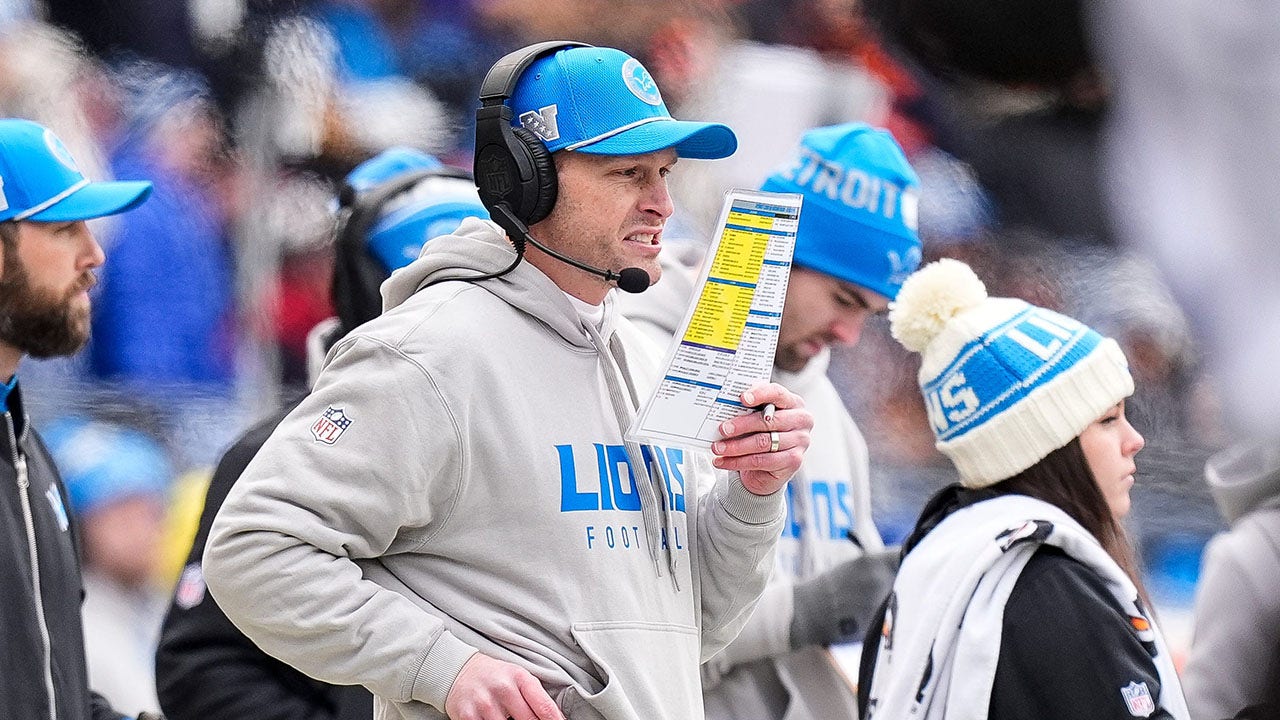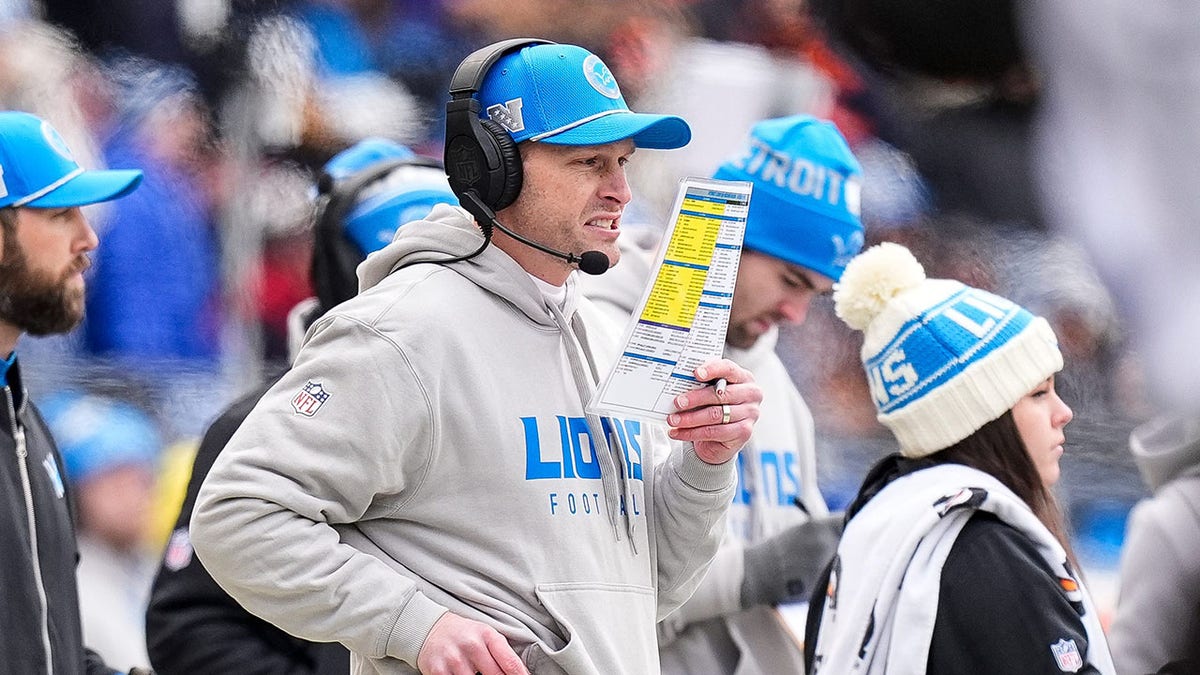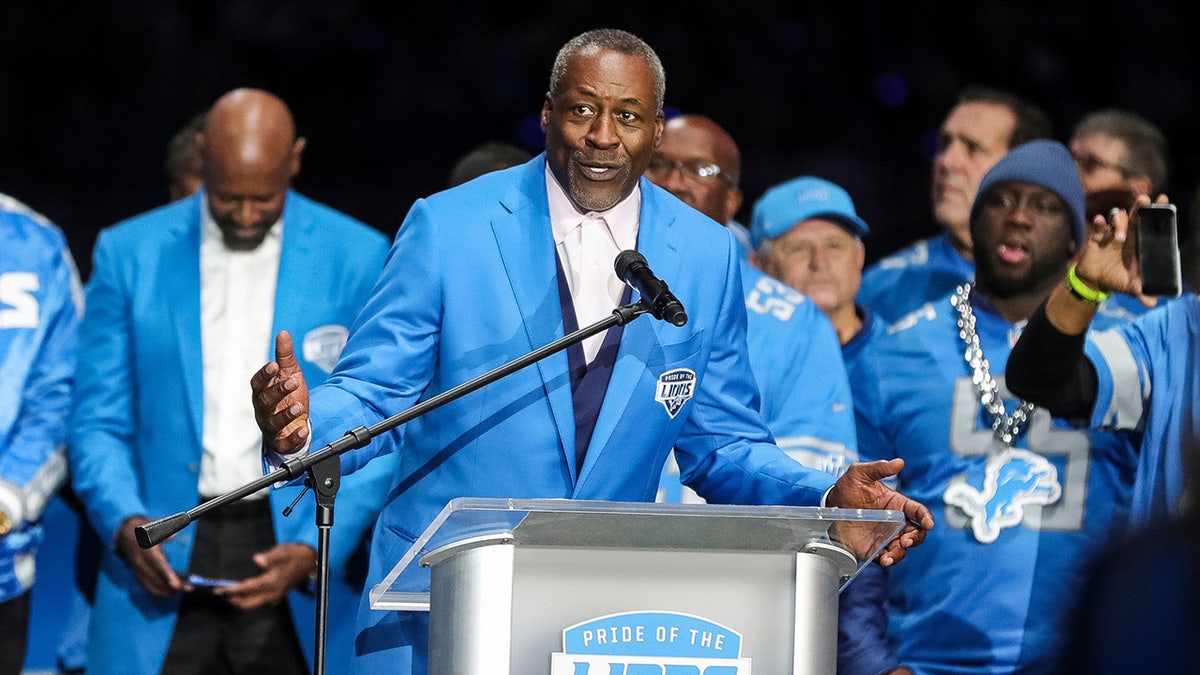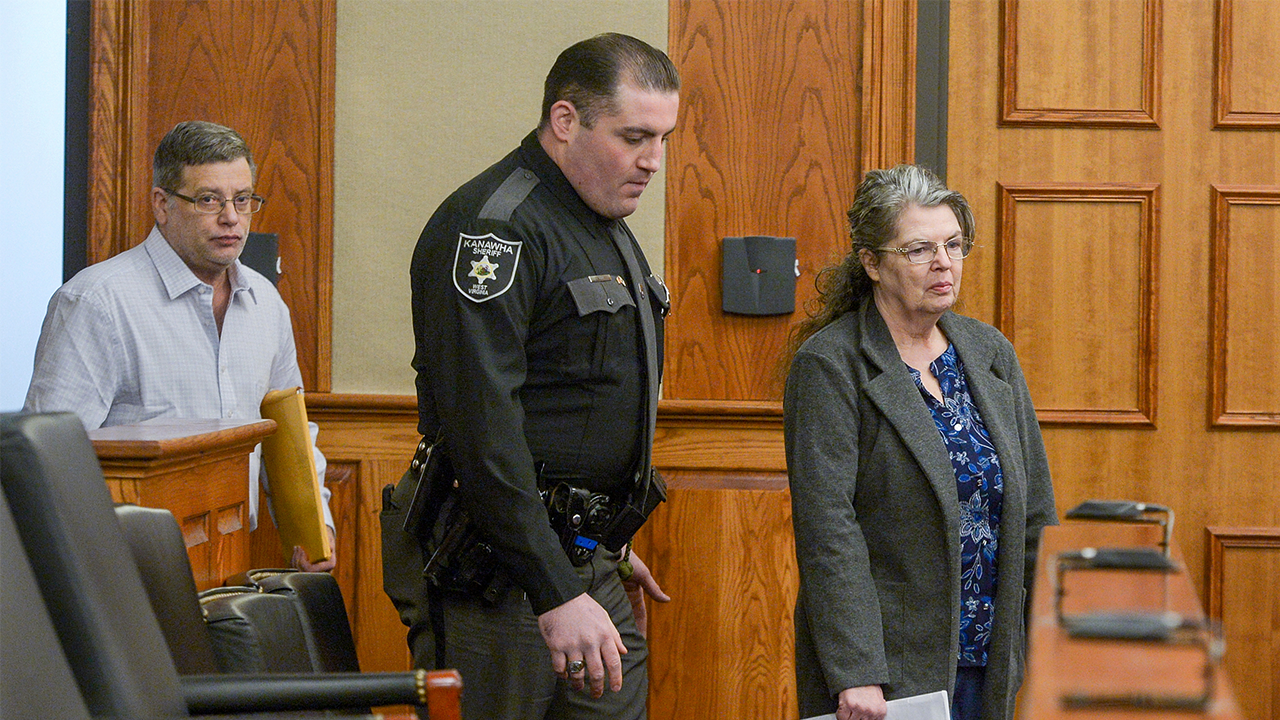Sports
Lakers get back on track against woeful Washington

Two days after the Lakers were saying it almost never would be easy, almost never came to town.
The Washington Wizards, who have won a league-low six times, were the cure for the Lakers after a loss Sunday to the Clippers exposed a number of their weaknesses. The postgame morale was low, LeBron James and JJ Redick openly discussing how their roster wouldn’t be able to organically improve an already narrow margin for error.
But with the midway point of the season here Tuesday, the Lakers played the one team in the NBA bad enough to make anyone — even the Lakers — feel like they’ve got it figured out.
The Lakers did the right things consistently over four quarters, barely being threatened before winning 111-88 in a game they desperately had to have before hosting Boston on Thursday night.
“It just starts with a very professional approach from our team,” Redick said. “That was one of our more complete games, regardless of what time of season it was or who the opponent was. Like, we just, we had a really professional approach.”
The Wizards (6-36), in the early stages of a rebuild with eyes on the top of the NBA draft, haven’t won since Jan. 1. Kyle Kuzma and Jordan Poole are their best offensive options and backup center Jonas Valanciunas and forward Corey Kispert their only other veterans, Washington fully committed to the future.
Compared to the Lakers (23-18), whose eyes are squarely on the present, that made Tuesday predictably one-sided — though the Lakers still needed to execute.
Anthony Davis had 29 points and 16 rebounds while bullying rookie Alex Sarr. James, fresh from watching his beloved Ohio State win the college football national championship Monday in Atlanta, had his ninth triple-double of the season with 21 points, 13 assists and 10 rebounds. Austin Reaves, despite a four-for-15 shooting night, still finished with 16 points and eight assists, and Dorian Finney-Smith had 16 points off the bench in just 22 minutes.
The Lakers did it by attacking the paint and finding the open player, the team scoring on more than a handful of lobs.
“It’s… just being ready to make the passes on time, on target,” James said. “And when we do that, we look pretty good.”
The biggest highlight came when Reaves found James for a lob off an offensive rebound, with the 40-year-old Lakers star dunking on Valanciunas.
Austin Reaves drives to the basket against Washington’s Bob Carrington in the first quarter.
(Wally Skalij / Los Angeles Times)
“I got hype. Screaming so loud, I almost passed out,” Davis said. “I mean, it wasn’t one of his best ones, but I’ve seen better. But it was a good one.”
The Lakers held Washington to 35.8% shooting from the field and 25.6% from three and limited the Wizards to 11 points in the fourth quarter.
“We went out, we had a game plan, we executed that,” James said. “I thought defensively, we were great. We were in tune with what they wanted to do, what they tried to do. And offensively, we shared the ball, limited our turnovers. We were really good.”

Sports
Novak Djokovic beats Carlos Alcaraz at Australian Open in display of physical and tactical fortitude

Relive how Novak Djokovic won the Australian Open quarterfinal
MELBOURNE, Australia — Novak Djokovic beat Carlos Alcaraz 4-6, 6-4, 6-3, 6-4 in the Australian Open quarterfinals at Melbourne Park on Tuesday night.
The No. 7 seed prevailed over the No. 3 seed in a fever-dream of an encounter, defined by a Djokovic injury, his tactical shift as it healed, and Alcaraz’s endless and ultimately fruitless search for a spark.
After three hours and 37 minutes, Djokovic moves on to the semifinals, where he will play No. 2 seed Alexander Zverev.
The Athletic’s tennis writers, Charlie Eccleshare and Matt Futterman, analyze the match against Alcaraz and what it means for the tournament, and for tennis.
A ninth game of Alcaraz genius and Djokovic injury
Alcaraz had started the match looking nervous, and struggling to find his range. He was making errors on the first shot after both his first and second serves, and when Djokovic held serve for 4-3, it felt like he just needed to raise his intensity to steal the first set.
Instead, Alcaraz held for 4-4 before Djokovic suffered a triple whammy in the ninth game. Having chased down a drop shot to go up 15-0, he appeared to hurt himself, wincing and moving gingerly afterwards. Then the thing happened that every Alcaraz opponent dreads: he hit a highlight-reel shot. After an outrageous forehand pass up the line, the Spaniard cupped his hand to his ear and suddenly looked visibly lighter. The third blow felt inevitable for Djokovic, and sure enough a wide forehand conceded the break of serve that was coming and gave Alcaraz the chance to serve out the set.
Novak Djokovic injured his left leg in the first set of the match, in the same game that Carlos Alcaraz seized the decisive break. (Clive Brunskill / Getty Images)
Djokovic was forced to leave the court for a medical timeout; a couple of minutes after returning, he was a set down. In what felt like the blink of an eye, he was suddenly having to play catchup against a player who had only lost one Grand Slam match from a set up. And that was at the Australian Open four years ago, in what was his first-ever major.

GO DEEPER
Inside Novak Djokovic’s recovery – accepting outsiders, hyperbaric chambers, Jelena’s worries
Matt Futterman, Charlie Eccleshare, James Hansen
Djokovic plays Alcaraz tennis, against Alcaraz
There wasn’t any chance that Djokovic was going to go away after picking up that injury. He came out for the second set a completely different player than the one who started the match.
In the first set, he was all about conservatism, turning points into physical contests and allowing Alcaraz to make errors, as he did in the first 12 games of both sets in their gold medal match at the Paris Olympics back in August.
That was no longer a possibility once he was playing with an injury. So Djokovic morphed into a first-strike player, just as he did in the tiebreaks of that Olympic final. He went hunting for every serve, ripping from the baseline at his first chance, even serving and sneaking into the net whenever he could to finish the point quickly. Points soon started ending after three or four shots.

Djokovic turned Alcaraz’s own style against him to win the second set. (Martin Keep / AFP via Getty Images)
Facing his own gifts being turned against him, Alcaraz was caught off-guard and lost his serve in the second game of the second set, as Djokovic whaled away on two forehand returns to get a break point, then won the game on the next one. After that, it became a test of whether this strategy could keep Djokovic in the match long enough to draw even, which would give him time for some combination of adrenaline and medication to kick in. Playing a hyper-aggressive brand of tennis for three sets would be nigh impossible, especially against the master of the art.
It worked even better than he could have hoped. Not only did he steal the set he usually loses while buying time, but when the pain in his leg began to ease, he was able to catch Alcaraz off-guard and keep him guessing about which Djokovic he was going to be facing from one point to the next.

GO DEEPER
Carlos Alcaraz and Jannik Sinner are redrawing the tennis court
Matt Futterman
How two players used to playing with house money dealt with being the gambler
At the 2024 Laver Cup in Berlin, The Athletic watched a match with eight-time Grand Slam champion Andre Agassi. When analyzing the encounter unfolding in front of him, Agassi kept returning to the idea that tennis players are always seeking to keep the odds of winning in their favor. The best players become like the house at a casino, and turn their opponents into gamblers who start with things stacked against them.
Throughout his career, Djokovic has been the ultimate in applying this logic, the epitome of ‘the house always wins’. His opponents might hit the flashier shots, but ultimately they end up losing the match, because whatever they are doing proves unsustainable.
Against Alcaraz, at this tournament and previously in last year’s Wimbledon final, it’s been a surreal experience to see Djokovic thrust into the gambler role, desperately hoping his number might come up. Injuries have played a part in this on both occasions, but it’s also a reality of his now being 37 years old: not everything can be played on your terms.

Alcaraz struggled to play on his terms after the fourth set. (Icon Sportswire / Getty Images)
What made the dynamic more interesting was that Alcaraz too was having to alter the way he normally becomes the house. His instinct is to be the protagonist and get on the front foot, even though he is also a great defender. He trusts that his brilliance will be enough to ultimately overwhelm his opponent, because it almost always is.
Djokovic’s approach Tuesday took him out of his comfort zone, and in the second set he appeared unsure as to what his best route to victory was. He was celebrating hanging in points and drawing errors, rather than whipping up the crowd after hitting a winner that had got them off their feet.
His head looked scrambled and, having been dicing with danger in several service games, Alcaraz was broken to love and Djokovic levelled the match.
By the start of the third set, Djokovic was moving more freely, which gave him the option to play both sides of the equation: house and gambler. He could drag Alcaraz into rallies and bait him into coughing up a spinny shorter ball, or blast off early. This noticeably flummoxed Alcaraz, who seemed confused about his route to victory. He never entered full highlight-reel mode; his serve, with a new, more fluid motion, couldn’t get him cheap points as it did earlier in the tournament.
By allaying his instincts and playing more conservatively, he became the gambler, as so many of Djokovic’s opponents have fooled themselves into doing in the past. This was different — Alcaraz was, at times, playing three different versions of Djokovic at once — but he couldn’t reverse the trend.

GO DEEPER
How to watch tennis with Andre Agassi – Poker analogies, meat, potatoes and intimacy
Charlie Eccleshare
Alcaraz’s search for a spark
All night long, it seemed like Alcaraz was a spark away from finding himself. Especially in the third set, when he was behind from the start and digging to come back. He went a break down, but got back on serve in the seventh game.
This was it… wasn’t it?
It was more like the opposite of that.
Alcaraz then committed three successive errors, on a volley, a forehand and a backhand. Djokovic, sensing his opponent had zero shot tolerance, went to work. He sucked Alcaraz into a 22-shot rally, then finished it with a looping forehand winner into the Spaniard’s backhand corner, not dissimilar to the one Alexei Popyrin hit against Djokovic at the U.S. Open last summer to send the crowd on Arthur Ashe into raptures and put the Serbian on notice that he was going home.

Alcaraz was frequently frustrated by tiny margins of error that accumulated throughout. (Hannah Peters / Getty Images)
After nearly two hours of deadening the stadium to keep the vibes low and Alcaraz disengaged, he put his hand to his ear and revved up the noise.
Then Djokovic fell 0-30 down as he served for the set. Could this be the Alcaraz spark? Nope. Two more errors from him drew Djokovic even. Time to test the shot tolerance again. A 17-shot rally this time, ending with Alcaraz whacking a running forehand into the net.
Rattled, and a point away from going down two sets to one, Alcaraz let Djokovic twist him this way and that and even baulked on an easy overhead before missing a backhand volley that he shouldn’t have had to hit.
Two games, 10 points, about eight minutes of play.
Script flipped.
Matt Futterman, Charlie Eccleshare, James Hansen
The 33-shot footnote in tennis history
In what was a weird match in so many ways, there was at least an exciting finale.
Alcaraz seemed to belatedly realize his only route back into this quarterfinal was to get the atmosphere going. He had searched for that spark all night, and finally got the chance in the fourth set.
When he won a 33-shot rally to save a break point that would have left him 5-2 down and out of the match, the Rod Laver Arena finally fizzed with energy. Djokovic raged, well aware of how significant the moment could be, with both players bent double at the side of the court. Alcaraz was smiling and laughing. Djokovic was fuming.
It felt like the turning point that Alcaraz has shown the tennis world so many times in his career, when he creates a highlight and then rolls downhill. Suddenly he was grinning again, sprinting around the court, almost enjoying himself.
When he held two break points in the next game, the comeback very briefly felt like it might be on.
But back came Djokovic, fending them both off before holding serve. Two games later, he served out the match to render that 33-shot rally ultimately irrelevant.
Charlie Eccleshare
What did Djokovic say after the match?
“I just wish that this match was the final,” Djokovic said in his on-court interview. “One of the most epic matches I’ve played on this court — on any court.”
“When the medications start to release, I’ll see what the reality is tomorrow morning. Right now. I’ll just try to be in the moment and enjoy this victory,” he said of his injury.
What did Alcaraz say after the match?
“We push each other to the limit,” he said. “I think we’ve played great points, great rallies. It was really tight in the third, the fourth set.
“I’m just lucky to live this experience. I’m 21 years old. From these matches, I’m getting so much experience about how to deal with everything. I’m not going to hide.
“I’ve done great things in tennis already, but playing against one of the best in the history of our sport, these kind of matches help me a lot in the future to be better.”
Recommended reading
(Top photo: Fred Lee / Getty Images)
Sports
Lions losing Ben Johnson to rival Bears is big 'body blow,' Super Bowl champion says

Former Detroit Lions offensive coordinator Ben Johnson left the team to take the Chicago Bears’ head coaching job Monday.
Super Bowl champion Lomas Brown talked about what Lions fans are going through losing their top coordinator after a crushing playoff loss during a recent appearance on OutKick’s “Don’t @ Me with Dan Dakich.”
“I know it’s another body blow. You know that old game, body blow, body blow. … That was a big one yesterday,” Brown said. “All of them on talk radio, that was the subject yesterday, Ben Johnson leaving. Oh my god, you got so many fans upset at Ben about taking the Chicago job. I think it’s more, not him leaving, but more of the job that he is accepting because of how bitter rivals we are with Chicago.
Detroit Lions offensive coordinator Ben Johnson before a game against the Chicago Bears at Soldier Field. (Daniel Barte/IImagn Images)
“Now, we got to face him twice a year. That just made the division even harder with Ben Johnson going in there. And a lot of sentiment before he took the job was that Ben wouldn’t take that job because he knew he would have to go up against his good friend Dan Campbell twice a year. But he took it. A lot of people not happy with it around here.”
The No. 1-seeded Lions were upset by the No. 6-seeded Washington Commanders, 45-31, Saturday.
Brown said losing Johnson, especially to a division rival, and potentially other top assistants make the loss to the Commanders hurt that much more.
LIONS’ DAN CAMPBELL CONFIDENT TEAM’S SUPER BOWL WINDOW REMAINS OPEN AFTER DISASTROUS LOSS TO COMMANDERS

Detroit Lions offensive coordinator Ben Johnson watches a play against the Chicago Bears during the first half at Soldier Field in Chicago Dec. 22, 2024. (Imagn)
“A lot of people not happy with it around here, and I think that it’s, again, I just think a lot of that’s from the results of the game, and just everything that’s going on the last few days around here. It’s culminating with Ben Johnson taking the job and, d—, we’re going to lose other assistants,” Brown said.
“I mean Aaron Glenn, you talk about maybe (offensive line coach) Hank Fraley. It’s other assistants that we’re going to lose off this team. That’s why this was the year for us to get it done.”
Glenn was scheduled to interview with the New York Jets for the second time for their head coaching position Tuesday, according to NFL Network.
Tuesday’s interview will be the first in-person meeting between the Jets and Glenn.

Lions legend Lomas Brown speaks during a Ring of Honor induction ceremony at halftime of a game between Detroit Lions and Las Vegas Raiders at Ford Field in Detroit Oct. 30, 2023. (Imagn)
Fraley is being interviewed for the Seattle Seahawks’ offensive coordinator position Tuesday, according to ESPN. It will be Fraley’s second interview with the team and their first in-person interview.
Brown spent 18 seasons in the NFL and was with the Lions for 11 of them. Brown was a star left tackle and made the Pro Bowl seven consecutive seasons from 1990-1996.
Brown won a Super Bowl in his final season with the Tampa Bay Buccaneers in 2002.
Follow Fox News Digital’s sports coverage on X, and subscribe to the Fox News Sports Huddle newsletter.
Sports
‘That’s for you, b—’: Why Yankees great CC Sabathia was a Hall of Fame teammate

New York Yankees catcher Austin Romine was buckling his shinguards in the dugout when he heard a booming voice and immediately looked up.
It was CC Sabathia. He was pissed.
“First dude,” Sabathia said.
It was Sept. 27, 2018. Sabathia was set on revenge against the Tampa Bay Rays, after reliever Andrew Kittredge aimed a 93-mph fastball at Romine’s head and narrowly missed in the top of the sixth inning with the New York Yankees ahead, 7-0, at Tropicana Field.
He decided he was going to hit catcher Jesús Sucre to lead off the bottom of the inning to send a message. He was going to do it even it meant getting ejected and finishing the season just short of a contract incentive that would have netted him $500,000.
Aware of the pending payday, Romine briefly tried talking Sabathia out of it. He knew Sabathia started the game needing to throw seven innings for the bonus, and the lefty was two innings shy.
“Nope,” Sabathia said, walking away. “First dude.”
On Tuesday, the Baseball Hall of Fame will announce whether Sabathia has earned first-ballot enshrinement.
When voters from the Baseball Writers’ Association of America contemplated Sabathia’s resume, they weighed all the stats and accolades. They considered that he was the ace when the Yankees won the World Series in 2009, a feat the team hasn’t accomplished since. They noted his 2007 American League Cy Young Award with the Cleveland Guardians, plus his 3,093 strikeouts, 251 wins and six All-Star appearances over his 19-year career. And some likely were still awed that Sabathia saved the Milwaukee Brewers’ 2008 playoff run by making each of his final three starts of the season on three days rest.
What the voters couldn’t quantify, however, was the outsized impact he had on his teammates and the respect he garnered throughout the game.
Never was that more on display on a public stage than in Sabathia’s last start of 2018.
After Sabathia forfeited the half-a-million dollar bonus by plunking Sucre on the butt and getting thrown out, he pointed to Kittredge in the Rays’ dugout and TV cameras could read his lips:
“That’s for you, bitch.”
At the time, it seemed like a shocking move. He had thrown just 54 pitches over five innings, and he was cruising, dotting his signature slider on both sides of the plate and handcuffing righties with the cut fastball that resurrected him late in his career. He wasn’t going to get another chance in the regular season to reach the incentive.
But to Romine and to manager Aaron Boone, it wasn’t a surprise.
All game, the Rays had chirped from their dugout at Sabathia for pitching inside and then hitting Jake Bauers on the hand.
When Romine collapsed to the dirt to avoid Kittredge’s fastball, he had a simple question to the catcher Sucre: “Why?”
For Sabathia, there was no question what had to happen next. He had to protect his teammates, even if home plate umpire Vic Carapazza already had issued warnings to both dugouts.
As Romine dusted himself off, Sabathia left the Yankees’ dugout to shout at the Rays. Boone held him back, walking him to the dugout.
In the process, Boone asked Sabathia not to retaliate. He knew it was a futile request.
“I remember being like, ‘Yeah, let’s not have him throw at anyone here,’ and knowing in my head that I don’t think he’s listening to me in this spot,” Boone said.
The fastball Sabathia hit Sucre with was 92.5 mph — the fastest pitch he threw all night.
“It speaks volumes to the old school baseball player he was, and the kind of baseball player he came up with,” Romine said. “No one is throwing at your guys, especially at the head. I think that really set something off in him. I’m never going to say it was about me. It was about his team. It was about his catcher and about his team being thrown at, and he’s been the guy to protect his team throughout his career. You’re throwing at the nine-hole backup catcher, and that’s one thing. You’re not going to throw at the three-hole, four-hole hitters.”
“That’s the type of guy you want to go to battle with,” Aaron Judge said at the time.
“I don’t really make decisions based on money, I guess,” Sabathia said after the 12-1 win. “I just felt like it was the right thing to do.”
Romine played parts of eight seasons as Sabathia’s teammate. He said Sabathia was a de facto captain in the Yankees’ clubhouse, and that the respect Sabathia received from his opponents was unlike anything he’d ever seen.
“He’s still the only guy ever where, generally, leadoff hitters come over and they tip their hat to the opposing manager,” Romine said. “Well, they would do that, and CC would be sitting on that water cooler, and the leadoff hitter would tip their hat to CC. It was funny to watch.”
“He’s getting ready to go to the Hall of Fame because of his excellence on the mound and the numbers he put up and the things he did,” Boone said. “But I think you’d be hard pressed to find somebody that he ever played with that probably didn’t have him near the top of their all-time teammate list. He’s such a connector. Easy to relate to. Easy to talk to. Made you feel important. Lived for the team over his own personal stuff.
“The great ones that are like that, and Judgey is like that a little bit too. I feel like there’s an underlying confidence that they know that they are going to get theirs and do well. So they don’t really even care about it. It’s about winning and the team, and they live it. CC lived it over and over again.”
At the end of the season, the Yankees gave Sabathia the bonus even though the ejection meant he came up just short.
“Grand scheme of things,” Boone said, “and the career he had, the $500,000 — it didn’t matter to him. Just didn’t matter. His first thing was being a teammate — being a great teammate. The competitive part of things.
“In the end, it just added to the legend of CC.”
(Top photo of Sabathia after his ejection against the Rays in September 2018: Mark LoMoglio/Icon Sportswire via Getty Images)
-
/cdn.vox-cdn.com/uploads/chorus_asset/file/25826211/lorealcellbioprint.jpg)
/cdn.vox-cdn.com/uploads/chorus_asset/file/25826211/lorealcellbioprint.jpg) Technology1 week ago
Technology1 week agoL’Oréal’s new skincare gadget told me I should try retinol
-
/cdn.vox-cdn.com/uploads/chorus_asset/file/25832751/2192581677.jpg)
/cdn.vox-cdn.com/uploads/chorus_asset/file/25832751/2192581677.jpg) Technology7 days ago
Technology7 days agoSuper Bowl LIX will stream for free on Tubi
-

 Business1 week ago
Business1 week agoWhy TikTok Users Are Downloading ‘Red Note,’ the Chinese App
-
/cdn.vox-cdn.com/uploads/chorus_asset/file/25835602/Switch_DonkeyKongCountryReturnsHD_scrn_19.png)
/cdn.vox-cdn.com/uploads/chorus_asset/file/25835602/Switch_DonkeyKongCountryReturnsHD_scrn_19.png) Technology5 days ago
Technology5 days agoNintendo omits original Donkey Kong Country Returns team from the remaster’s credits
-

 Culture4 days ago
Culture4 days agoAmerican men can’t win Olympic cross-country skiing medals — or can they?
-
/cdn.vox-cdn.com/uploads/chorus_asset/file/24774110/STK156_Instagram_threads_1.jpg)
/cdn.vox-cdn.com/uploads/chorus_asset/file/24774110/STK156_Instagram_threads_1.jpg) Technology1 week ago
Technology1 week agoMeta is already working on Community Notes for Threads
-

 Culture2 days ago
Culture2 days agoBook Review: ‘Somewhere Toward Freedom,’ by Bennett Parten
-

 Politics5 days ago
Politics5 days agoU.S. Reveals Once-Secret Support for Ukraine’s Drone Industry













